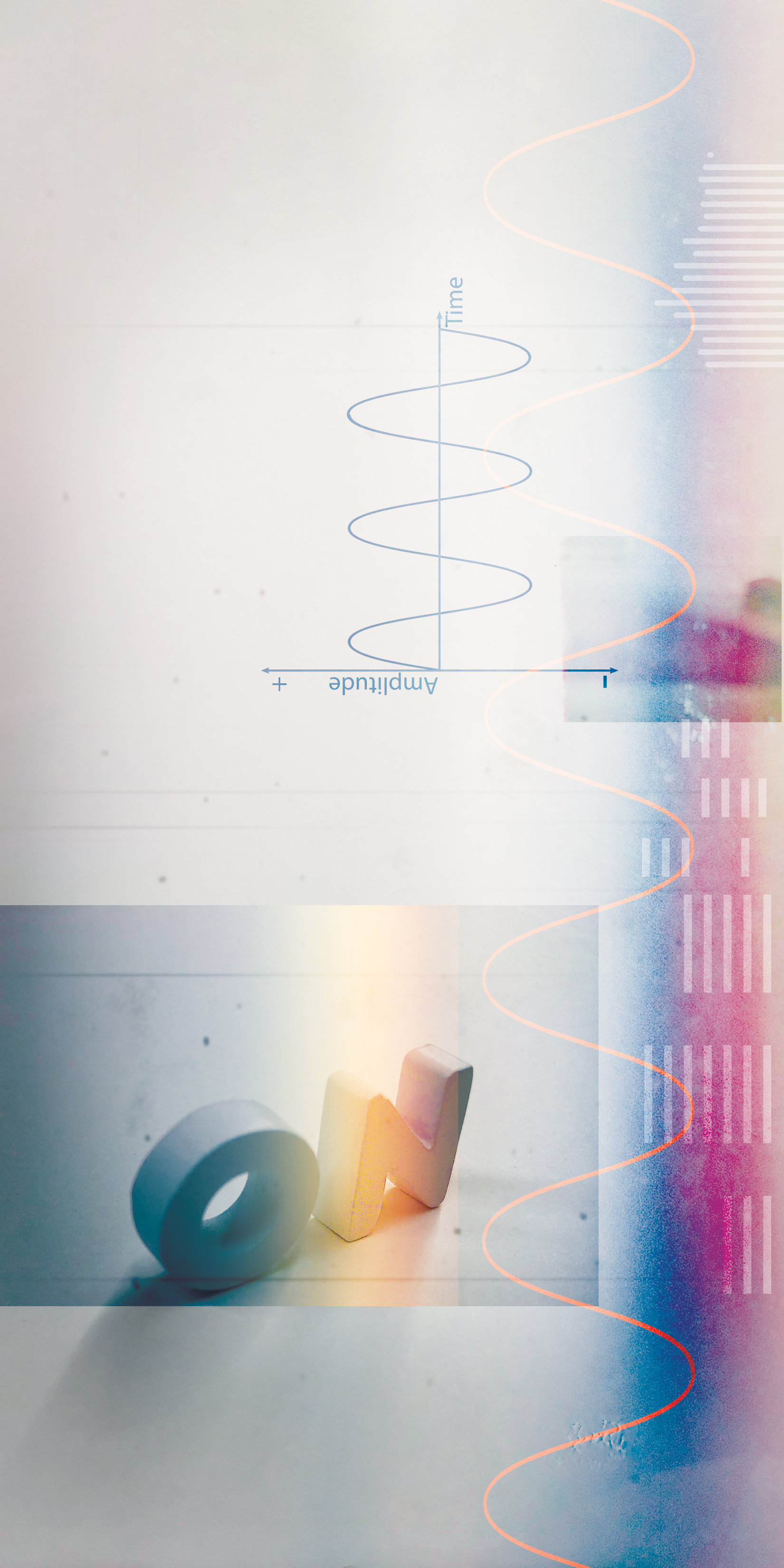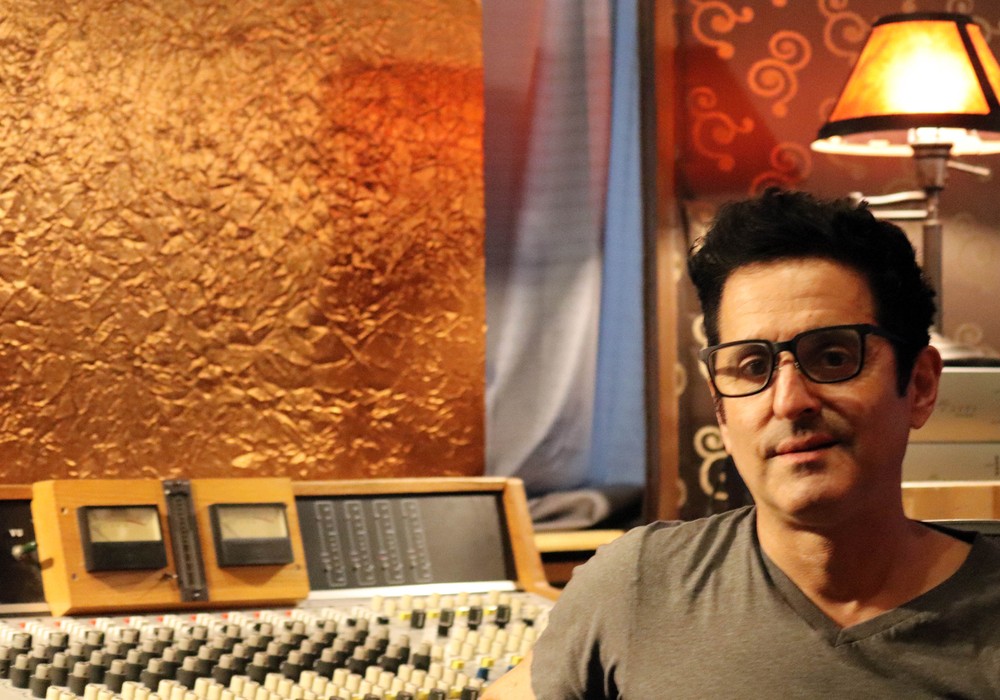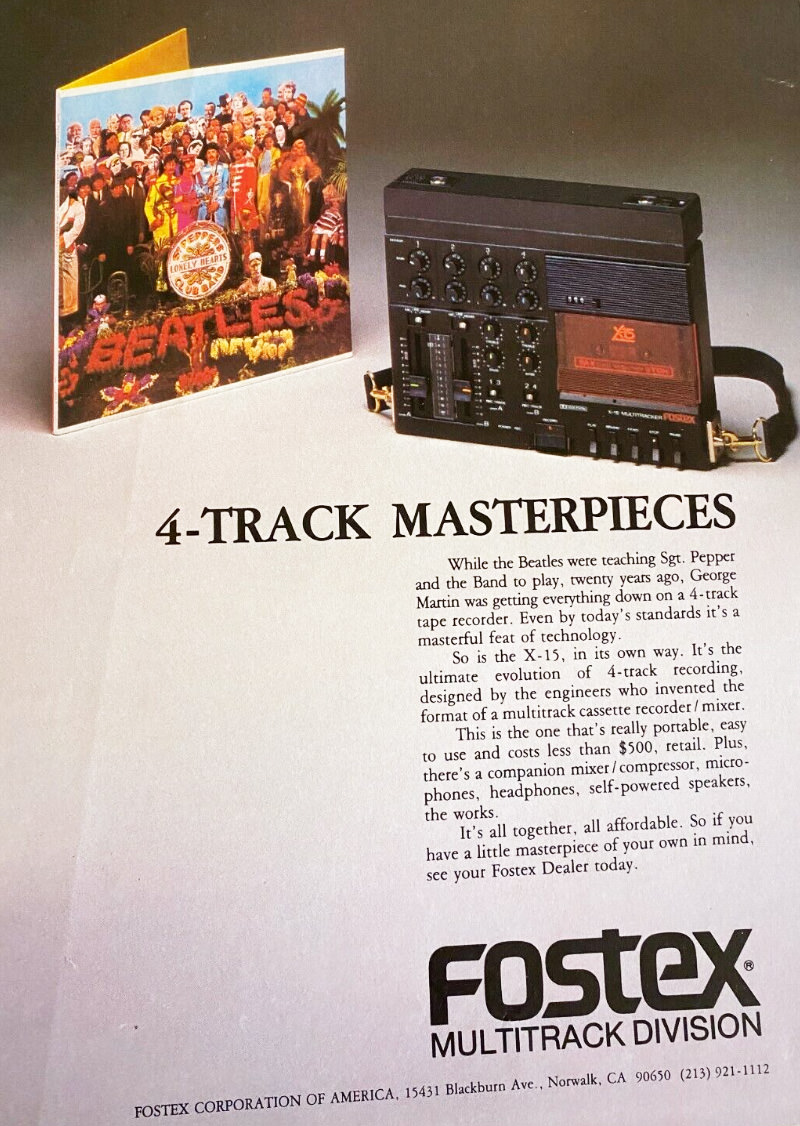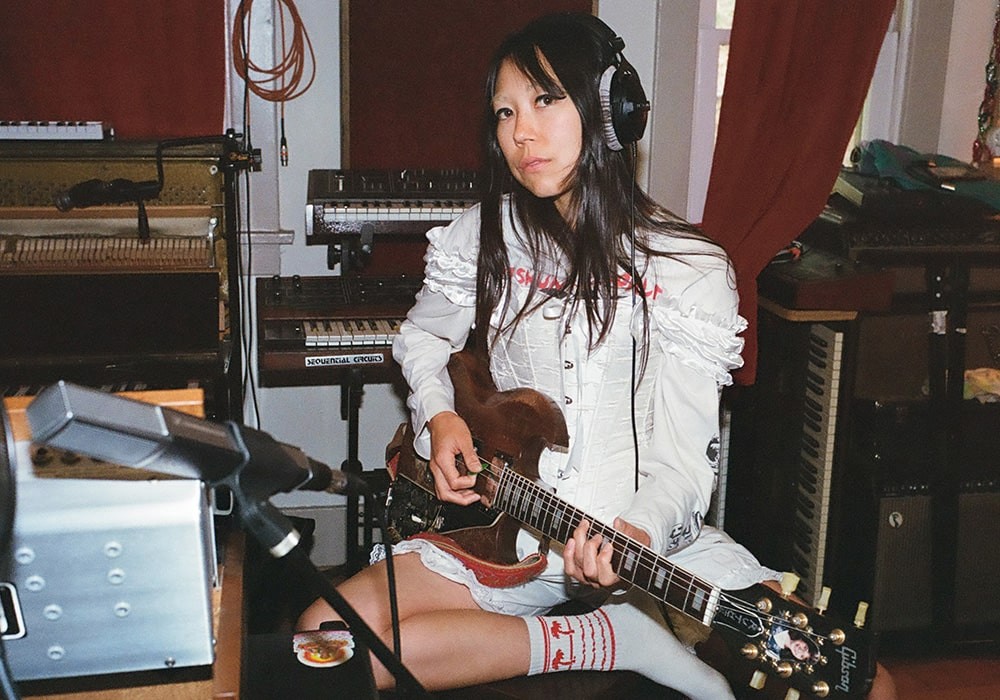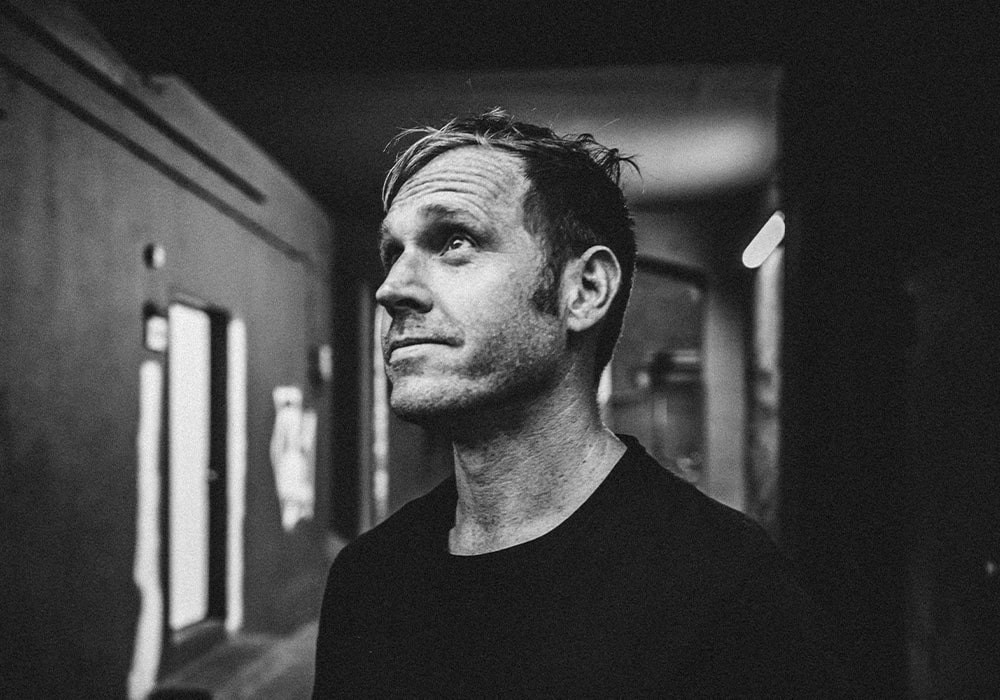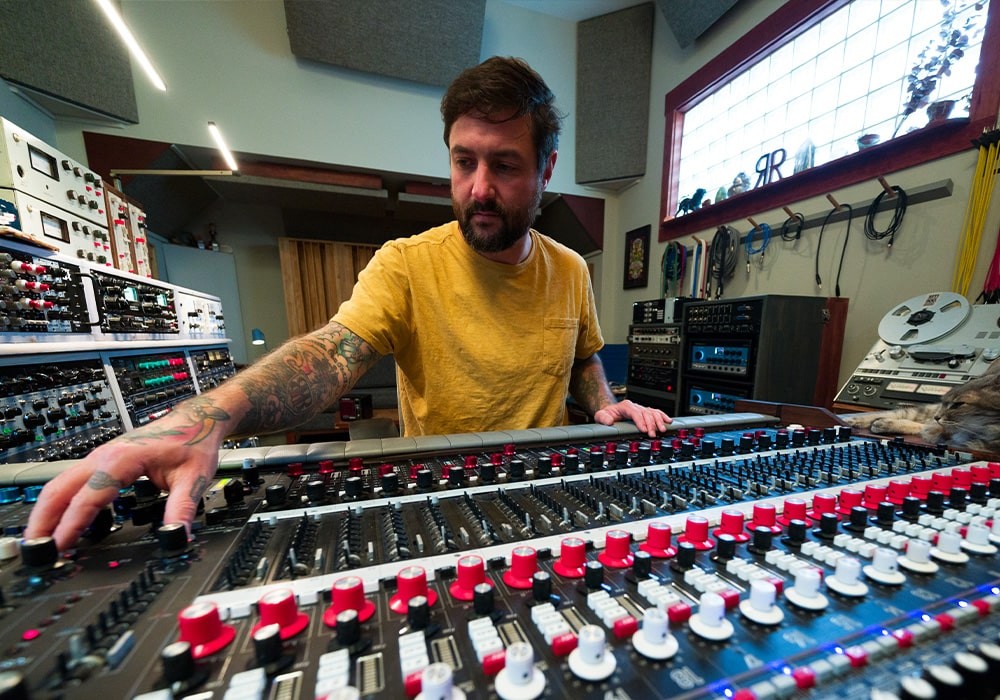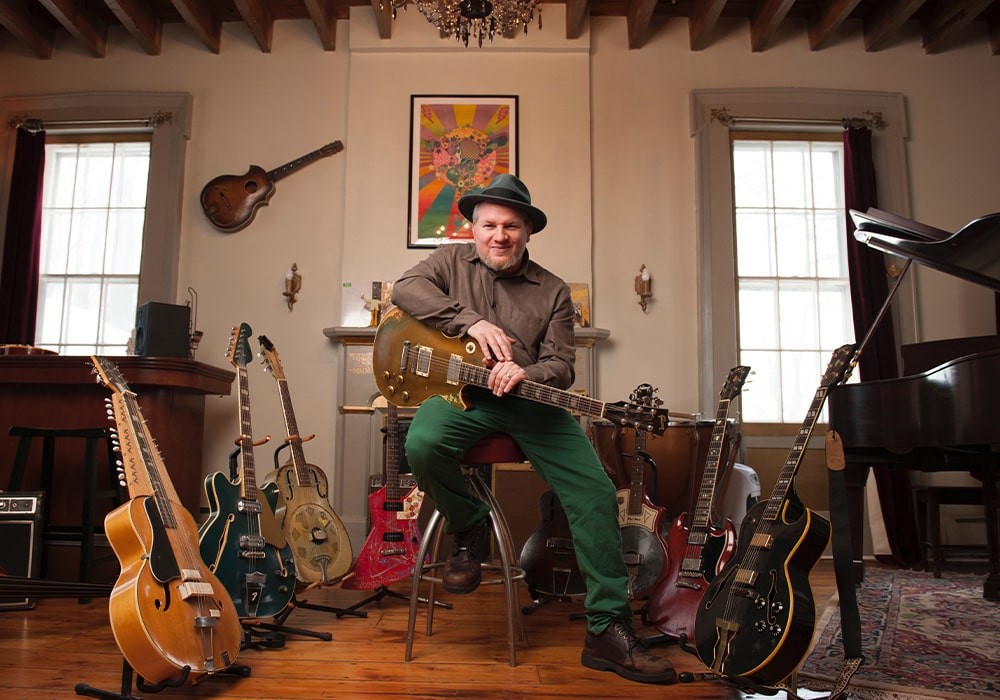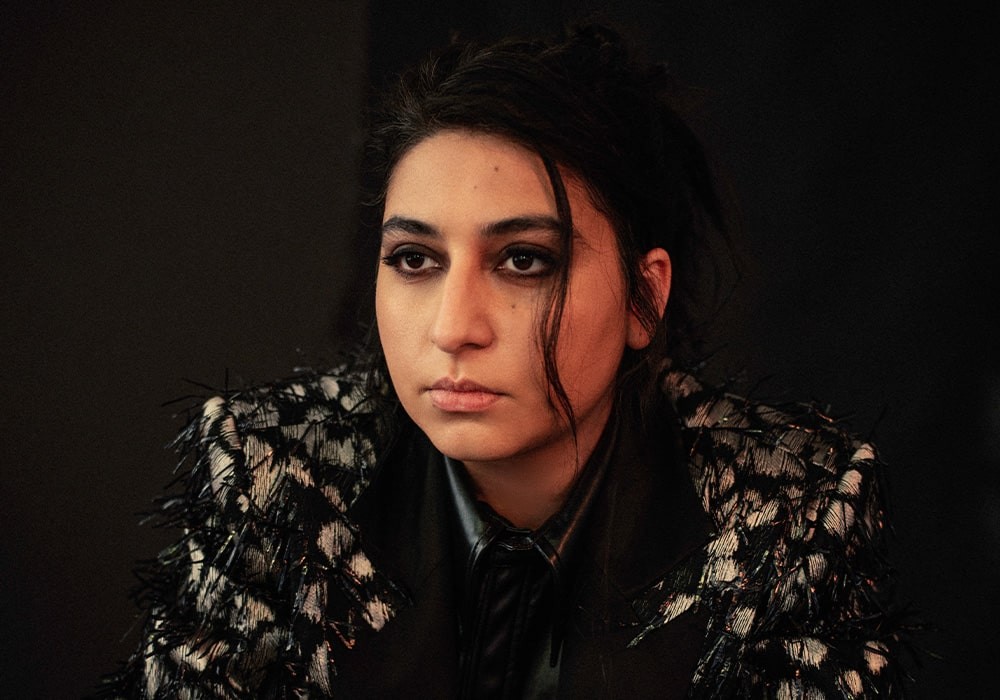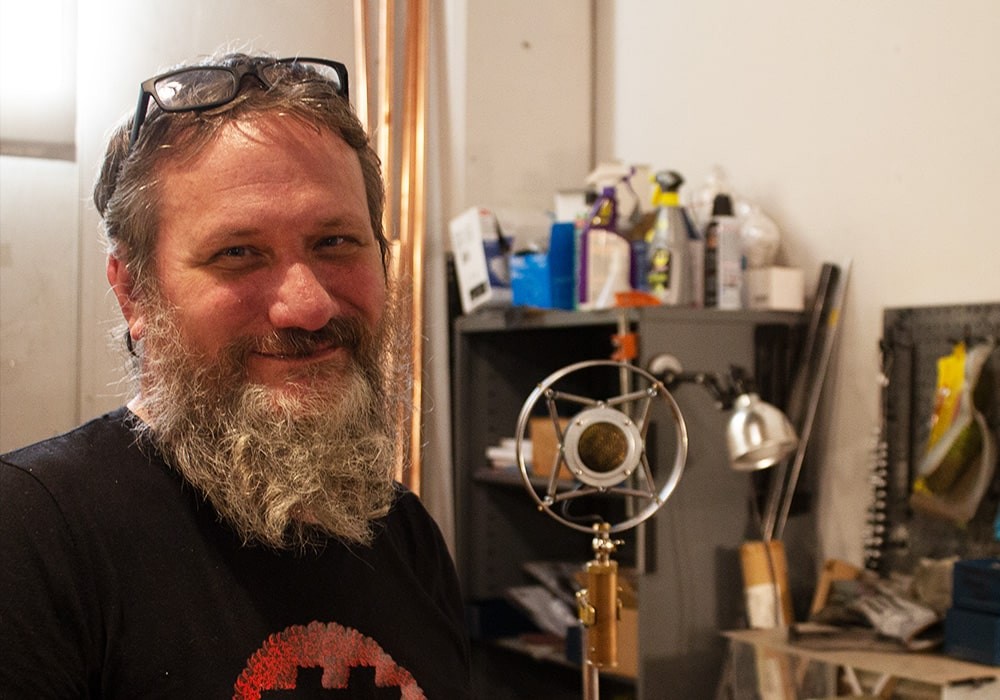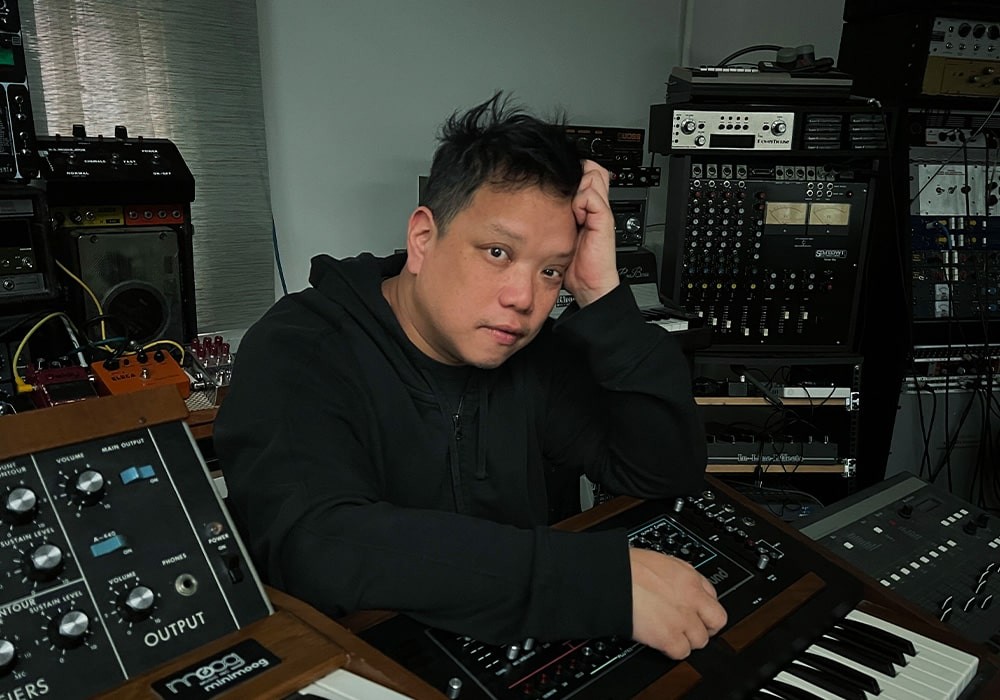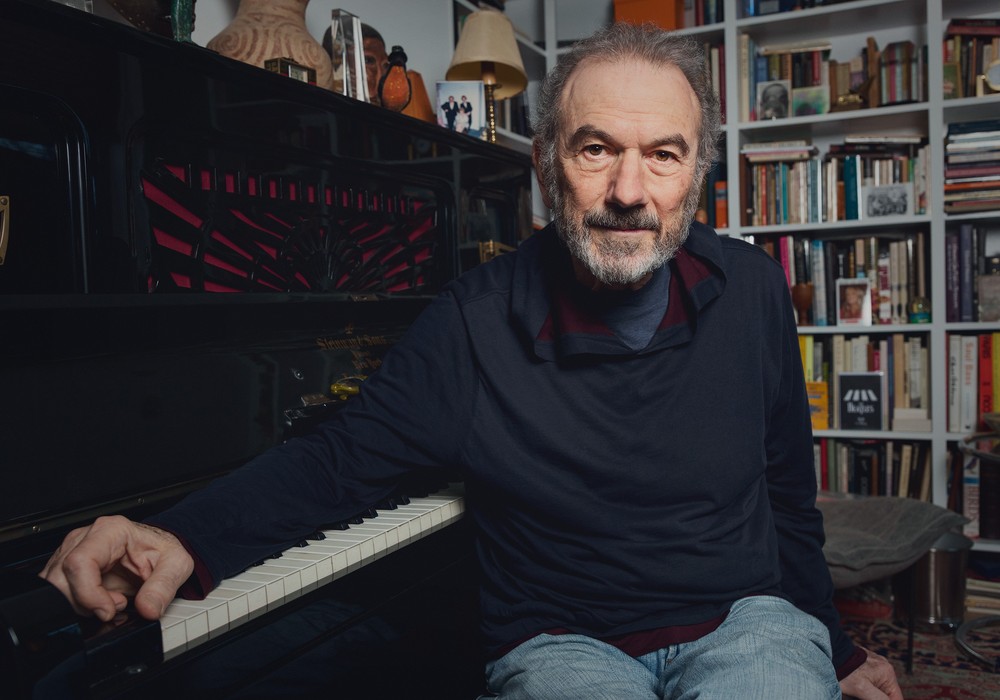Belleville, New Jersey, is a deceptively quiet enclave up the river from Newark. A beautiful mural here, a grungy secondhand shop there – it’s a collision of worlds. A bit like the mild-mannered Evetts himself, who politely offers coffee before dissecting the aggressive sounds he pioneered at the fabled Trax East Recording Studio in the ‘90s. Through his early work with Incantation, The Dillinger Escape Plan, and Hatebreed, he virtually invented a new genre per album, yet he’s also renowned for his emotionally driven pop punk productions with the likes of Lifetime, Saves the Day, and The Wonder Years. No matter the style of music, he stays true to his philosophy of committing to sounds and keeping a human level of excitement in his recordings. We chatted in his colossal live room as Steve was preparing to record Prong's recent album, State of Emergency. (Steve was also previously interviewed for Tape Op #56 online. -Ed)
Steve in his new studio in Belleville, NJ.
You were born in Brooklyn, NY, but grew up in East Brunswick, NJ. Was bass your first instrument?
I started on viola in school, and I don't even think they do that in schools anymore. It's a shame, because music is so important to the development of the brain. Why are they not exposing kids to arts now? Now the phone’s their whole life. It’s bizarre to me. I consider myself fortunate to have been exposed to music at an early age. My parents loved music. My mom played piano a little bit, and my dad – funny enough – was a dance instructor. He wasn't musical, but he had rhythm. When he was a teenager, he taught cha-cha and old school dance.
What are some early memories of getting interested in recording?
I was seven when I found an old Webcor reel-to-reel tape recorder in my parents' attic. I would record my sister playing classical piano and move the little crystal microphone connected with an RCA plug. I'd go out with an extension cord and record cars going down the street. I also had a hand-me-down Panasonic stereo from my parents that had separate volume knobs for the left and right speaker. I’d put on The Beatles' "White Album", flip the mono switch, and I could fade up the hard panned vocal. I could explore two-channel remixing. When I got my first Fostex X-15 4-track, it could run mobile with D batteries. I’d take two microphones and record my friend playing acoustic guitar by the beach with the ocean sounds. The print ad mentioned that [The Beatles'] Sgt. Pepper's Lonely Hearts Club Band was recorded on a 4-track. I was so excited, not realizing that you really needed a mixer, a mic pre, and EQs to get a good drum sound.
It’s hard to know that right out of the gate. How did you progress from the Fostex?
Growing up in central Jersey in the ‘80s, there was a whole scene. Tons of clubs, Bon Jovi, Skid Row, and all those bands. I was playing bass in a pop metal band called American Angel, and I would record our demos. We got a record contract and an advance, and I bought a Tascam 8-track cassette [recorder] with a little mixer and an Alesis QuadraVerb. My whole goal was hoping my band went multi-platinum so I could open a recording studio.
You soon began your legendary run of recording bands at Trax East in South River, New Jersey. Your band originally recorded there?
Yes, and I loved being in the studio. I was the first one there and the last one to leave. We did our debut album [American Angel] with Eric Rachel producing, and I was in there, constantly being a pain and sucking up as much info as I could. Fast forward to a year later, and the deal's gone and the band folded. We're not going to tour, and we're not getting another deal because it’s the turn of the ‘90s, and grunge hit.
You must have gone back to Eric and made yourself available in the studio.
He put me in right away, on a simple vocal overdub session, and taught me how to thread the tape machine with 2-inch tape. After pointing out what was plugged into the patchbay, he sat with me for 5 minutes and then said, “Bye!” [laughter] I also attended IAR [Institute of Audio Research], but the first semester was mostly physics and calculus, whereas I was more interested in circuit building. John M. Woram’s The Recording Studio Handbook that IAR used is great and is still applicable to basic principles of signal flow.
You were getting your feet wet quickly at Trax East, and dipping into death metal when you recorded Incantation’s landmark Onward to Golgotha.
There was a whole death metal scene in Jersey with them and Ripping Corpse, whose guitarist, Erik Rutan, is now a killer producer in his own right. When I...
